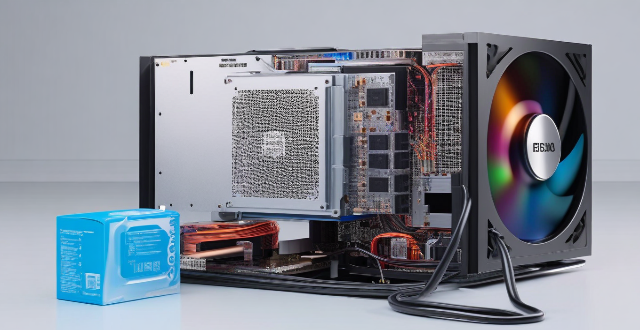Using a liquid cooling system for computer hardware offers benefits such as improved thermal performance, quieter operation, enhanced overclocking potential, cleaner build aesthetics, and increased longevity and durability. These advantages make liquid cooling an attractive choice for enthusiasts looking to get the most out of their systems while maintaining a comfortable computing environment.

Benefits of Using Liquid Cooling System for Computer Hardware
Using a liquid cooling system for your computer hardware can provide several benefits compared to traditional air cooling methods. Here are some of the key advantages:
Improved Thermal Performance
- Efficient Heat Dissipation: Liquid cooling systems use a coolant to absorb heat from components and transfer it to a radiator, where it is dissipated more effectively than with air coolers.
- Lower Temperatures: By providing better thermal performance, liquid cooling allows for lower operating temperatures of critical components like CPUs and GPUs.
- Consistent Temperature Maintenance: Liquid coolants maintain consistent temperatures due to their high thermal conductivity, ensuring stable performance under heavy loads.
Quieter Operation
- Reduced Noise Levels: Since there's no need for large fans to blow air across hot components, liquid cooling systems operate much quieter than their air-cooled counterparts.
- Peaceful Computing Experience: The absence of loud fan noise makes for a more peaceful computing environment, especially in quiet offices or home setups.
Enhanced Overclocking Potential
- Higher Overclocking Headroom: With improved thermal management, liquid cooling enables users to push their components further without the risk of overheating.
- Stable System Performance: Stable temperatures during overclocking lead to more stable system performance and fewer crashes or throttling issues.
Cleaner Build Aesthetics
- Customization Options: Liquid cooling systems often come with customizable parts such as colored tubing, reservoirs, and radiators, allowing for unique build aesthetics.
- Space Efficiency: The compact nature of liquid cooling solutions frees up space within the case, making it easier to showcase other components and achieve a clean look.
Longevity and Durability
- Extended Lifespan: Better temperature control contributes to longer lifespans for sensitive components like CPUs and GPUs.
- Maintenance and Upkeep: While liquid cooling systems require occasional maintenance, they are designed for long-term durability when properly cared for.
In conclusion, using a liquid cooling system for your computer hardware offers numerous benefits including improved thermal performance, quieter operation, enhanced overclocking potential, cleaner build aesthetics, and increased longevity and durability. These advantages make liquid cooling an attractive choice for enthusiasts looking to get the most out of their systems while maintaining a comfortable computing environment.